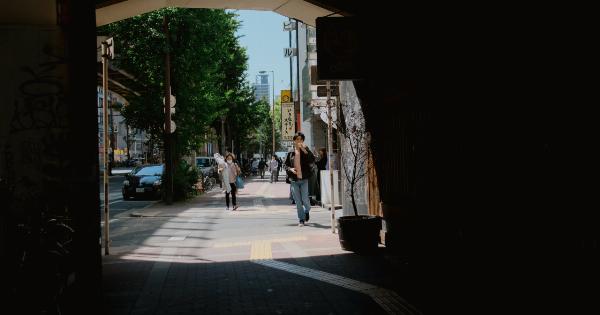As humans, we all have the intrinsic desire for happiness and satisfaction, and we often seek these through different means.
Many people believe that material possessions can give them the fulfillment they crave, but studies have shown that experiences may be more valuable than things. In this article, we will explore why experiences are more valuable and how landscapes can contribute to one’s emotional satisfaction over things.
Experiences vs. Things: Why Experiences Are More Valuable
Many people may assume that buying material things can make them happier. In fact, this belief has become prevalent in today’s consumerist society. People are constantly sold the idea that their lives would be better if they acquired more things.
However, research reveals that it is experiences that make people happier and more fulfilled.
Experiences create memories that last a lifetime and can bring people closer together or help us grow as individuals.
In contrast, the value of material possessions only goes down over time, and they don’t offer the same level of social connection and emotional satisfaction as experiences do. In fact, people who prioritize experiences over things tend to be happier, have stronger social bonds, and be more grateful in life.
The Emotional Satisfaction of Landscapes
One of the ways in which experiences can bring joy and satisfaction is through landscapes. Research shows that exposure to nature and natural landscapes can have a positive effect on human psychology and well-being.
The beauty and serenity of nature can be calming and evoke positive emotions. For example, a study by the University of California revealed that people who spent more time in nature reported higher levels of life satisfaction.
The aesthetic appeal of landscapes, especially natural ones like forests, oceans, and mountains, can inspire creativity, stimulate the senses, and facilitate mindfulness.
Moreover, landscapes create a sense of connectedness between humans and the environment, allowing them to feel more grounded and at peace. This grounding effect of nature can reduce stress, alleviate anxiety, and even boost cognitive function.
Why Landscapes Are More Valuable Than Things
When compared to material possessions, landscapes have a unique value that cannot be replicated by any object. Here are some reasons why landscapes are more valuable than things:.
: They provide unique sensory experiences
Landscapes offer a multisensory experience that can provide more emotional satisfaction and memories than things.
The sound of waves crashing on the shore, the smell of fresh pine trees, the sight of a gorgeous sunset – these are all things that can never be replicated by material possessions. The sensory richness of natural landscapes can offer humans a chance to be present and experience the world around them in a more profound way.
: They put us in touch with our natural selves
We are all a part of the natural world, and yet modern life has made us increasingly disconnected from it. Landscapes let us reconnect with our roots and tap into our natural selves.
The raw beauty of nature can remind us of our place in the world and our interconnectedness with other living beings. This connection, in turn, can inspire a sense of humility and gratitude that cannot be found in material possessions.
: They offer freedom from consumer culture
In a world where we are conditioned to constantly want more, landscapes offer freedom from consumer culture. Unlike material possessions, landscapes cannot be bought and sold.
Their value comes not from what they cost but from the experiences they provide. By focusing on landscapes and experiences, people can avoid the trap of consumerism and find true fulfillment on their own terms.
Conclusion
As humans, we all crave happiness and satisfaction. While many look to material possessions to achieve those goals, research has shown that experiences may be more valuable.
Nature, particularly landscapes, has unique value that cannot be replicated by any material object. The sensory richness and grounding effect of natural landscapes can inspire creativity, boost cognitive function, reduce stress, and offer people a connectedness to their surroundings.
And by prioritizing experiences over things, people can find true fulfillment and happiness on their own terms.





























